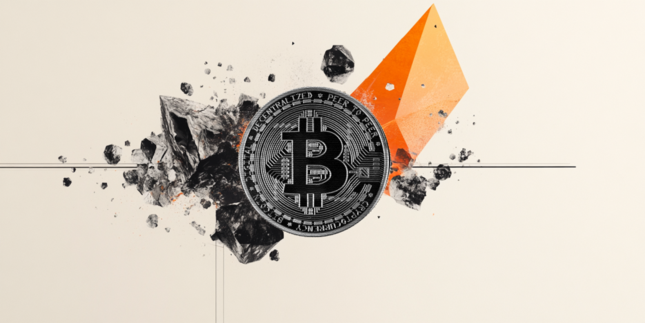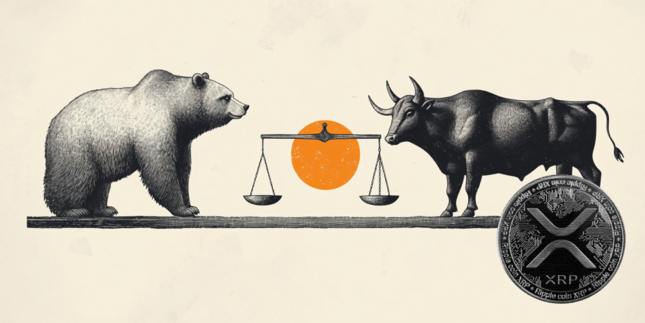- OKEx lost contact with one of the private keys holders leading to the suspension of withdrawals.
- UniSwap rallies amid debate on how DEXs offer better services than centralized exchanges.
The cryptocurrency industry has been treated to an unusual occurrence on Friday after OKEx, a leading exchange, suspended withdrawals. The event shook the entire market, led by Bitcoin's drop from $11,500 to $11,200.
Major altcoins such as Ethereum, Ripple and Bitcoin Cash plunged only to find support at $365, $0.24 and $250 in that order. The market is yet to recover from the shock, while many analysts believe that more declines are in the offing.
On the contrary, UniSwap (UNI), the native token of the decentralized exchange, UniSwap experienced an unexpected price jump following the OKEx withdrawal suspension news. Meanwhile, UNI is doddering at $3.23, following an incredible spike from levels slightly above $2.8.
OKEx in the spotlight after suspending withdrawals
Towards the end of the Asian session on Friday, OKEx announced the suspension "of digital assets/cryptocurrencies." One of the holders of the exchange's private keys "is currently cooperating with a public bureau," in a continuing investigation. OKEx claims that they have not been in contact with the private key holder; hence, "the associated authorization could not be completed."
The exchange assured customers that apart from the withdrawal of digital assets/cryptocurrencies, all other operations remain functional. The withdrawals will commence "immediately once the concerned private key holder is able to authorize the transaction."
Why decentralized exchanges could be the solution
Decentralized exchanges, commonly known as DEXs, allow selling and buying of digital assets but never take custody of the funds. In other words, funds are transferred from one user wallet to another. Smart contracts are utilized in the execution of trades. In other words, the user is always in control of their funds. On the contrary, centralized exchanges such as OKEx take custody of the funds, just like a typical bank will do.
Whereas the centralized exchanges ensure the safety of their customers' funds, DEXs have no control over this. In addition to providing custodial services, centralized exchanges must ensure that withdrawals are made timely.
Decentralized exchanges like UniSwap are hardly victims of hack attacks because they do not store large volumes of funds like centralized exchanges. Hacking attacks are common in centralized exchanges. For instance, Bitstamp was hacked in 2015, Japan-based Coincheck exchange suffered a massive attack in 2018 and the defunct Mt.Gox exchange was also hacked twice in 2011 and 2014, among other cases.
As mentioned earlier, users on DEXs have full control over their funds and do not need to wait for the platforms' withdrawals. Instances of centralized exchanges freezing withdrawals are not new. Besides, the OKEx announcement on Friday told customers that "pursuant to 8.1 Service Change and Interruption of the Terms of Service, OKEx may change the Service and/or may also interrupt, suspend or terminate the service at any time with or without prior notice."
UniSwap triumphs in the mayhem
The rally witnessed in UniSwap highlights the need for a paradigm shift in how exchanges handle customer funds. Users would like to control their money as it gives them peace of mind and control. The OKEx suspension of withdrawals highlights the value of decentralized exchanges like UniSwap, as reflected by the remarkable price movement.
UniSwap boost is running out of steam
The incredible price action following the communication from OKEx hit a barrier formed by a confluence of the 100 Simple Moving Average (SMA) and 200 SMA. However, a bullish divergence of the Relative Strength Index (RSI) shows that buyers still have the upper hand. If bulls can flip the confluence into support, UNI may resume the uptrend to $3.8. Unfortunately, buying pressure is diminishing.
UNI/USD hourly chart
On the downside, the 50 SMA is holding as immediate support. Bulls must defend this zone to avert a potential reversal. Meanwhile, crucial support lies at $2.8 in addition to the significant anchor at $2.5.
Looking at IntoTheBlock's IOMAP model, challenging resistance levels lie ahead. The zone between $3.3 and $3.4 comes out as the most robust seller congestion area. Here, roughly 3,300 addresses previously bought around 32.5 million UNI.
On the flip side, the dwindling support shows that UNI could soon retreat to the levels before the OKEx news. The primary support lies from $3.1 to $3.2, where 156 addresses bought approximately 13.5 million UNI.
UNI IOMAP chart
Looking at the other side of the fence
It is worth mentioning that if the confluence resistance at the 100 SMA and 200 SMA is overcome, UNI/USD could keep the uptrend intact. The RSI shows that buyers are relatively in control only that they lack the power to push above $3.3. Moreover, if terrible news continues coming out of OKEx, investors will continue giving DEXs attention, which will boost UNI to levels past $3.8.
Information on these pages contains forward-looking statements that involve risks and uncertainties. Markets and instruments profiled on this page are for informational purposes only and should not in any way come across as a recommendation to buy or sell in these assets. You should do your own thorough research before making any investment decisions. FXStreet does not in any way guarantee that this information is free from mistakes, errors, or material misstatements. It also does not guarantee that this information is of a timely nature. Investing in Open Markets involves a great deal of risk, including the loss of all or a portion of your investment, as well as emotional distress. All risks, losses and costs associated with investing, including total loss of principal, are your responsibility. The views and opinions expressed in this article are those of the authors and do not necessarily reflect the official policy or position of FXStreet nor its advertisers. The author will not be held responsible for information that is found at the end of links posted on this page.
If not otherwise explicitly mentioned in the body of the article, at the time of writing, the author has no position in any stock mentioned in this article and no business relationship with any company mentioned. The author has not received compensation for writing this article, other than from FXStreet.
FXStreet and the author do not provide personalized recommendations. The author makes no representations as to the accuracy, completeness, or suitability of this information. FXStreet and the author will not be liable for any errors, omissions or any losses, injuries or damages arising from this information and its display or use. Errors and omissions excepted.
The author and FXStreet are not registered investment advisors and nothing in this article is intended to be investment advice.
Recommended Content
Editors’ Picks

Shiba Inu eyes positive returns in April as SHIB price inches towards $0.000015
Shiba Inu's on-chain metrics reveal robust adoption, as addresses with balances surge to 1.4 million. Shiba Inu's returns stand at a solid 14.4% so far in April, poised to snap a three-month bearish trend from earlier this year.

AI tokens TAO, FET, AI16Z surge despite NVIDIA excluding crypto-related projects from its Inception program
AI tokens, including Bittensor and Artificial Superintelligence Alliance, climbed this week, with ai16z still extending gains at the time of writing on Friday. The uptick in prices of AI tokens reflects a broader bullish sentiment across the cryptocurrency market.

Bitcoin Weekly Forecast: BTC consolidates after posting over 10% weekly surge
Bitcoin price is consolidating around $94,000 at the time of writing on Friday, holding onto the recent 10% increase seen earlier this week. This week’s rally was supported by strong institutional demand, as US spot ETFs recorded a total inflow of $2.68 billion until Thursday.

XRP price could renew 25% breakout bid on surging institutional and retail adoption
Ripple price consolidates, trading at $2.18 at the time of writing on Friday, following mid-week gains to $2.30. The rejection from this weekly high led to the price of XRP dropping to the previous day’s low at $2.11, followed by a minor reversal.

Bitcoin Weekly Forecast: BTC consolidates after posting over 10% weekly surge
Bitcoin (BTC) price is consolidating around $94,000 at the time of writing on Friday, holding onto the recent 10% increase seen earlier this week.

The Best brokers to trade EUR/USD
SPONSORED Discover the top brokers for trading EUR/USD in 2025. Our list features brokers with competitive spreads, fast execution, and powerful platforms. Whether you're a beginner or an expert, find the right partner to navigate the dynamic Forex market.
-637384395746092853.png)
-637384396095022814.png)